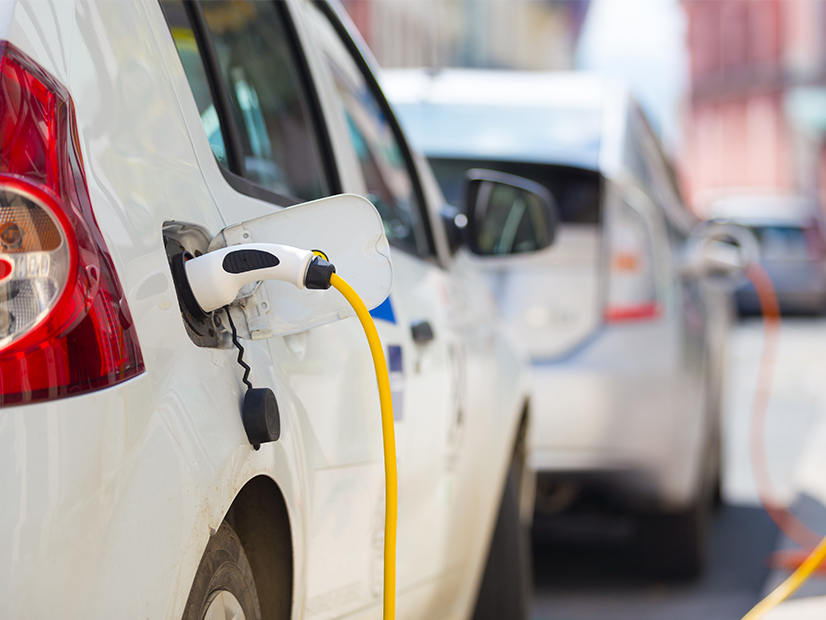As U.S. automakers pull back on plans to invest heavily in electric vehicles, claiming sales are not growing as fast as expected, the Treasury Department and Internal Revenue Service issued new guidelines on the federal tax credits for EVs that could further slow sales.
As U.S. automakers pull back their plans to invest heavily in electric vehicles, claiming sales are not growing as fast as expected, the Treasury Department and IRS have issued new guidelines on the federal tax credits for EVs that could further slow sales.
Beginning Jan. 1, EVs with any battery components manufactured or assembled by a “foreign entity of concern” (FEOC) — meaning, in this case, owned or controlled by China — will not be eligible for the $7,500 EV tax credit, according to the proposed rules.
Issued Dec. 1, the notice of proposed rulemaking (NOPR) from Treasury and IRS would similarly prohibit tax credits for any EV containing “any critical minerals that were extracted, processed or recycled by a FEOC,” beginning in 2025.
How to determine if an entity is a FEOC is detailed in additional proposed guidelines, also released Dec. 1, from the Department of Energy. Based on provisions in the Infrastructure Investment and Jobs Act, the guidelines define a “foreign entity of concern” as being “owned by, controlled by or subject to the jurisdiction or direction of a government of a foreign country that is a covered nation.”
In addition to China, the U.S. has designated Russia, Iran and North Korea as “foreign countries of concern” or “covered nations.” DOE’s proposed guidelines spell out how certain terms in the IIJA should be interpreted, including “government of a foreign country,” “foreign entity,” “subject to the jurisdiction” and “owned by, controlled by or subject to the direction.”
Treasury and IRS previously issued guidelines on the EV tax credits, in December of 2022 and March of 2023, both of which were sharply criticized by Sen. Joe Manchin (D-W.Va.) as providing loopholes that would allow EVs to circumvent the domestic content provisions he wrote into the law. (See IRA’s EV Tax Credits Spark Senate Debate.)
The new guidelines appear to be aimed at plugging those loopholes, noting that “several critical segments of the battery supply chain today are predominantly processed and manufactured within covered nation boundaries.”
For example, a company located in but not owned by a covered nation would be considered a FEOC if the covered nation could “exercise legal control … with respect to any critical minerals that are physically extracted, processed or recycled, any battery components that are manufactured or assembled and any battery materials that are processed” in that country.
Also, a U.S. company could be considered a FEOC if it is “sufficiently controlled” by the government of a covered nation “via the holding of 25% or more of an entity’s board seats, voting rights or equity interest … [or] via license or contract conferring rights on a person that amount to a conferral of control.”
Manchin remains critical of the guidelines. In a statement released Friday, he said the administration is “trying to find workarounds and delays that leave the door wide open for China to benefit off the backs of American taxpayers.”
In this case, he may have been referring to provisions in the guidelines on ‘‘non-traceable” or “low-value” battery materials “that may originate from multiple sources and often are commingled during refining, processing or other production processes by suppliers to such a degree that the qualified manufacturer cannot, due to current industry practice, feasibly determine and attest to the origin of such battery materials.”
These low-value materials include “applicable critical minerals contained in electrolyte salts, electrode binders and electrolyte additives” and make up less than 2% of battery components, according to Treasury. The guidelines propose a transitional rule “that would temporarily exclude a specific list of identified non-traceable battery materials from the due diligence requirements of the qualified manufacturers” through 2026, to give the industry time to develop standards for tracing the low-value materials.
The Outlook for 2024
As written by Manchin, the IRA placed limits on the EVs and EV buyers that can qualify for the law’s EV tax credits. Light-duty EV sedans can’t cost more than $55,000, while the maximum price for electric SUVs and light-duty pickup trucks is $80,000.
EV buyers also must meet certain income requirements, earning no more than $150,000 per year for a single consumer, $225,000 for a single head of household and $300,000 for couples filing joint tax returns.
For the full $7,500 tax credit, EVs also have to meet domestic content provisions, separate from the proposed FEOC rules. For example, in 2023, to qualify for the credit, 50% of the value of battery components in an EV must have been manufactured or assembled in North America. In 2024 and 2025, the percentage goes up to 60%, with additional yearly increases eventually rising to 100% by 2029.
Similar requirements are in place for the percentage of critical minerals in an EV battery. These provisions already have kept many foreign-made EVs ineligible for tax credits on new EV sales to consumers.
At present, according to DOE’s fueleconomy.gov website, for the 2023 model year, more than 20 different models of EVs or plug-in hybrids, mostly from U.S. automakers, qualify for either a $7,500 or $3,750 tax credit. For the 2024 model year, the list shrinks to 10 models.
For the 2023 model year, Ford’s F-150 Lightning pickup qualified for a $7,500 tax credit, while the Mustang Mach-E SUV qualified for a $3,750 credit. At present, Ford has no 2024 models eligible.
The impact on EV sales remains uncertain. The National Automobile Dealers Association reported that the U.S. has racked up more than 1 million new EV sales in 2023 — with a month still to go — the first time sales have exceeded 1 million in a single year.
Neither Ford nor General Motors have issued public statements on the guidelines. Both companies recently paused work on new EV factories. However, on Dec. 5, GM announced the opening of 17 public EV charging stations in 13 states, which it developed in partnership with Pilot Travel Centers and EVGo.
Both the Treasury and DOE proposed guidelines were published in the Federal Register on Dec. 4, beginning comment periods. The comment period for the DOE guidelines on FEOCs closes Jan. 3. Comments on the Treasury guidelines are due by Jan. 18.


